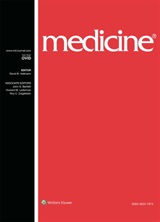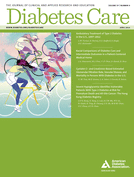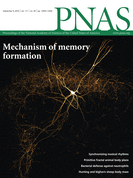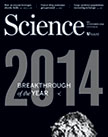 Happy New Year! This week, we took a look back at 2014. Here’s what was happening elsewhere: Continue reading Weekend reads: Sensationalism in science journalism and PR; Beall’s predatory publisher list grows
Happy New Year! This week, we took a look back at 2014. Here’s what was happening elsewhere: Continue reading Weekend reads: Sensationalism in science journalism and PR; Beall’s predatory publisher list grows
Author: Ivan Oransky
AIDS denialism paper retracted after Jeffrey Beall draws attention to it
 A paper arguing that HIV does not cause AIDS has been retracted a few weeks after Jeffrey Beall, who tracks predatory publishers, called attention to it on his blog.
A paper arguing that HIV does not cause AIDS has been retracted a few weeks after Jeffrey Beall, who tracks predatory publishers, called attention to it on his blog.
Here’s what Beall wrote about the paper on December 16:
The article is entitled “Basic Principles Underlying Human Physiology” [1], and you don’t have to be a scientist to know that it’s junk, for it is a manifestation of AIDS denialism. The conclusion’s first paragraph says,
HIV is not etiologically involved in AIDS. It is just a common retrovirus found in AIDS conjuncturally. There is only AIDS that may not be strictly associated neither to a primary immune deficiency nor to an acquired immune deficiency. Actually, heart failure represents the causal factor of AIDS and many other “primary” immune deficiencies (p. 1821).
Now, in that article’s place, this retraction, dated December 19, appears: Continue reading AIDS denialism paper retracted after Jeffrey Beall draws attention to it
Fake peer review fells two more papers
 The number of papers retracted for fake peer reviews — well in excess of 100, by our count — continues to grow.
The number of papers retracted for fake peer reviews — well in excess of 100, by our count — continues to grow.
The latest to join the list are “Rebamipide plus proton pump inhibitor versus proton pump inhibitor alone in treatment of endoscopic submucosal dissection-induced gastric ulcer: a meta-analysis of randomized controlled trials” and “Association study of TGFBR2 and miR-518 gene polymorphisms with age at natural menopause, premature ovarian failure and early menopause among Chinese Han women,” both published in 2014 in Medicine.
Here’s how both notices, signed by senior publisher Duncan A. MacRae, read: Continue reading Fake peer review fells two more papers
Retraction Watch: A year in review, an accounting, and thanks
 2014 was quite a year for Retraction Watch. We reported on hundreds of retractions — here are our top 10 — but we also took some big steps in our development. Some highlights: Continue reading Retraction Watch: A year in review, an accounting, and thanks
2014 was quite a year for Retraction Watch. We reported on hundreds of retractions — here are our top 10 — but we also took some big steps in our development. Some highlights: Continue reading Retraction Watch: A year in review, an accounting, and thanks
PubPeer Selections: “Too remarkable to believe;” a super-duplicate publication; what was acceptable in 2002?
Retractions follow revelations of misconduct by diabetes biotech
 Several months after a drug company cancelled development of a potential diabetes cure because it found evidence that a biotech they had recently acquired had committed misconduct in studies of the drug, two retractions of relevant studies have appeared.
Several months after a drug company cancelled development of a potential diabetes cure because it found evidence that a biotech they had recently acquired had committed misconduct in studies of the drug, two retractions of relevant studies have appeared.
The research involves DiaPep277, which, as Josh Levy explained here in September, “would cause the immune system to stop attacking beta cells,” the cells in the pancreas that produce insulin. But Hyperion Therapeutics, which had acquired DiaPep277 developer Andromeda Biotech in June, announced in September that it had
uncovered evidence that certain employees of Andromeda Biotech, Ltd., which Hyperion acquired in June 2014, engaged in serious misconduct, including collusion with a third-party biostatistics firm in Israel to improperly receive un-blinded DIA-AID 1 trial data and to use such data in order to manipulate the analyses to obtain a favorable result.
The retractions are both of papers published in Diabetes Care in May 2014. Here’s the notice for “Treatment of Recent-Onset Type 1 Diabetic Patients With DiaPep277: Results of a Double-Blind, Placebo-Controlled, Randomized Phase 3 Trial:” Continue reading Retractions follow revelations of misconduct by diabetes biotech
Weekend reads: “Plagiarism is for losers;” the retraction war; a step back for science in 2014
 Welcome to our last Weekend Reads of 2014. This week featured our second annual Top 10 Retractions list. Here’s what was happening elsewhere: Continue reading Weekend reads: “Plagiarism is for losers;” the retraction war; a step back for science in 2014
Welcome to our last Weekend Reads of 2014. This week featured our second annual Top 10 Retractions list. Here’s what was happening elsewhere: Continue reading Weekend reads: “Plagiarism is for losers;” the retraction war; a step back for science in 2014
The top 10 retractions of 2014
 As they did last year, our friends at The Scientist asked us to contribute our list of top 10 retractions in 2014. Here’s our list, from Anversa to Zaman. Continue reading The top 10 retractions of 2014
As they did last year, our friends at The Scientist asked us to contribute our list of top 10 retractions in 2014. Here’s our list, from Anversa to Zaman. Continue reading The top 10 retractions of 2014
Peer review isn’t good at “dealing with exceptional or unconventional submissions,” says study
 One of the complaints about peer review — a widely used but poorly studied process — is that it tends to reward papers that push science forward incrementally, but isn’t very good at identifying paradigm-shifting work. Put another way, peer review rewards mediocrity at the expense of breakthroughs.
One of the complaints about peer review — a widely used but poorly studied process — is that it tends to reward papers that push science forward incrementally, but isn’t very good at identifying paradigm-shifting work. Put another way, peer review rewards mediocrity at the expense of breakthroughs.
A new paper in the Proceedings of the National Academy of Sciences (PNAS) by Kyle Silera, Kirby Leeb, and Lisa Bero provides some support for that idea.
Here’s the abstract: Continue reading Peer review isn’t good at “dealing with exceptional or unconventional submissions,” says study
Paper that formed basis of study retracted earlier this year retracted itself, from Science
 Back in May, we reported on a retraction from Molecular Cell that referred to a 2012 study the same group had published in Science. (A few weeks later, the lab head told us just how painful the process was.)
Back in May, we reported on a retraction from Molecular Cell that referred to a 2012 study the same group had published in Science. (A few weeks later, the lab head told us just how painful the process was.)
Now, the Science paper has been retracted. Here’s the notice: Continue reading Paper that formed basis of study retracted earlier this year retracted itself, from Science
